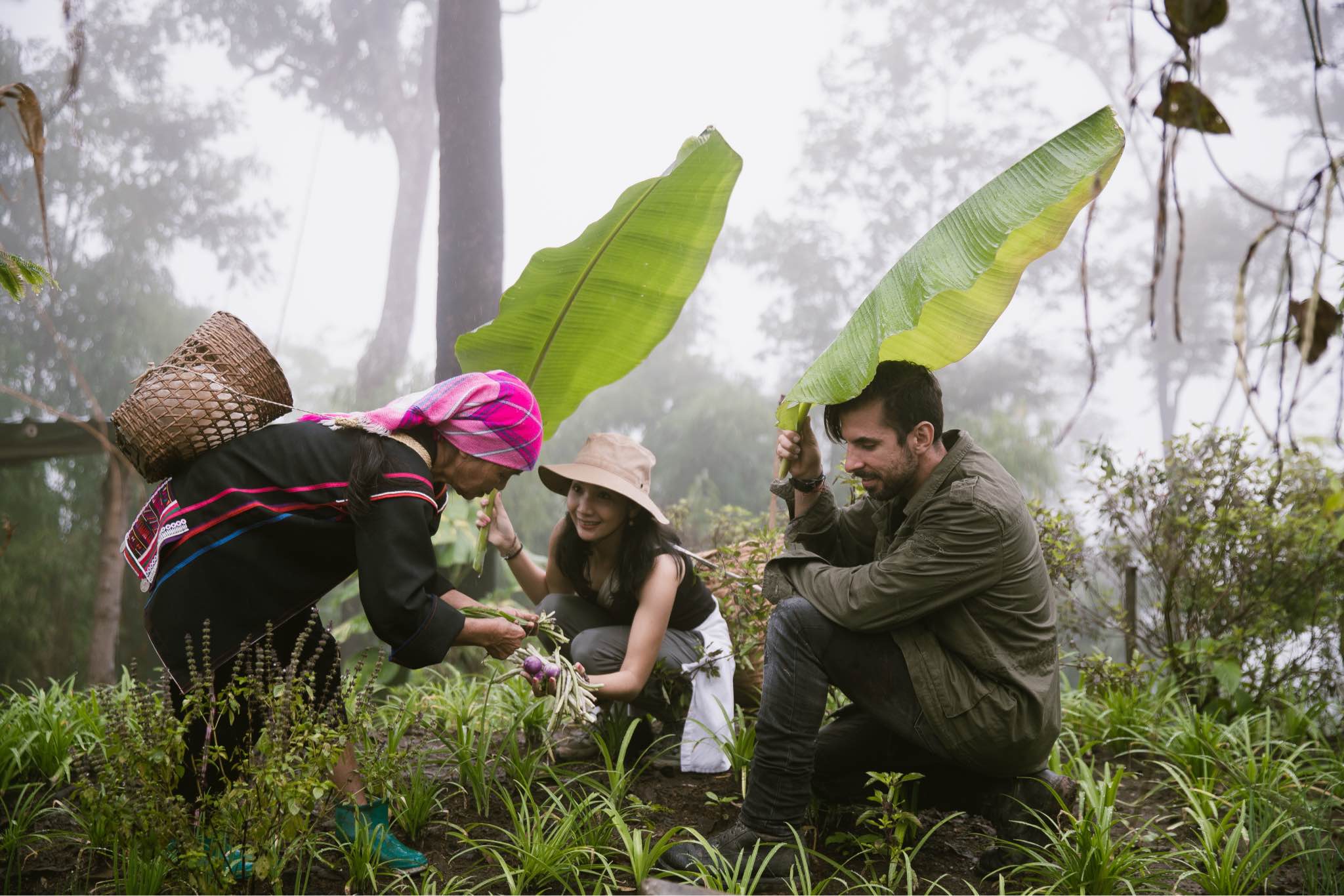With the growing global green movements, sustainable development has become more than just a passing trend or an idealistic pursuit of environmental activists. We have all come to realize that it is possible for everyone to adopt sustainable practices in their daily routines, even while traveling the world.
With its position at number nine on the list of the world’s 40 most visited countries in 2024 (according to Yahoo Finance), Thailand is fully aware of the environmental impacts caused by the expanding tourist industry. Several regulations and efforts have been implemented by both the Thai government and the business sector to make tourism in Thailand more sustainable while being practical, which would bring an incredible opportunity for tourists to truly enjoy and engage with the locals and mother nature. Here are six simple green activities in which any visitor to Thailand can participate to help encourage ecotourism while still enjoying everything the country has to offer:
1. Choose eco-friendly accommodations

The most recent research indicates that hotels and resorts are responsible for ten percent of the greenhouse gas emissions and other CO2 equivalents (CO2-eq) that are produced by the tourist industry. The primary sources of emissions in these facilities are air conditioning and electrical systems. We recommend that you reserve a room in Thailand that has received certification from reputable international organizations such as EarthCheck (https://earthcheck.org), Thailand’s environmental agencies like the Thai Green Building Institute (https://tgbi.or.th), and the Department of Climate Change and Environment’s Ministry of Natural Resources and Environment’s Green Hotel project (https://greenhotelthai.com), with 306 accommodations around the country being certified through this project.
Suppose you choose to stay at these environmentally friendly facilities while you are in Thailand. In that case, you will not only lessen the impact that you have on the environment, but you will also be providing incentives for a significant number of other accommodations in the country to commit to this vital cause.
2. Support responsible tour operators

Promoting sustainable tourism can also be facilitated by selecting responsible tour operators. First and foremost, we recommend you choose companies that have acquired licenses to operate in Thailand. Additionally, we strongly recommend that you select businesses that engage in ecologically responsible operations while also making an effort to preserve the cultures of the communities they serve. Ecotourism and community-based travel, for instance, pose a greater responsibility and are more environmentally friendly.Tour operators have a great opportunity to make a positive impact by adopting additional sustainable strategies. One effective approach is to hire local guides, which not only creates job opportunities but also helps support the grassroots economy and preserve traditional cultures. Encouraging the sale of local food, crafted souvenirs, and other services can further contribute to these goals. Additionally, implementing waste management and pollution reduction policies at tourist attractions is crucial for minimizing environmental harm. By taking these steps, tour operators can significantly contribute to promoting sustainability. To find a list of responsible tour operators, please visit: https://tclub.readyplanet.site/travel-agencies.
3. Reduce your use of plastic
Minimizing the amount of plastic you use while traveling is one of the best travel practices since it reduces the likelihood of causing pollution to the environment and serves as an excellent example for the communities that you visit.
Generally speaking, travelers should be aware of the 3Rs principle, a gentle reminder that we all can contribute to reducing the amount of plastic used while traveling:
Reduce: Use fewer plastic straws, plastic cutlery, and single-use plastic products. Go for materials that degrade instead.
Reuse: Take reusable tote bags and a water bottle or thermos flask while traveling.
Recycle: Dispose of your trash in the proper garbage cans.
4. Minimize one’s carbon emissions

Fossil-fueled transportation is responsible for approximately half of the greenhouse gas emissions that are produced. There are several ways that you can contribute to reducing your carbon footprint while visiting Thailand. Public transportation options, including trains, buses, and ferries, offer reduced emission rates per passenger compared to private vehicles. On the other hand, if you choose to travel by automobile or motorcycle, you should make sure that you travel not alone but with other people. In addition, every effort should be made to switch to electric vehicles as much as possible in order to cut down on the amount of fossil fuels that are consumed. In conclusion, walking and riding a bicycle are the most efficient strategies to reduce the amount of carbon footprints you leave behind.
5. Volunteer or contribute to conservation activities
In Thailand, there are numerous volunteer opportunities with the objective of conserving and protecting the environment:
• Participate in mangrove reforestation initiatives in the provinces of Samut Songkhram, Samut Sakhon, and Chanthaburi in partnership with the Raks Thai Foundation
• Take part in Phetchaburi provincial elephant protection initiatives run in association with Wildlife Friends Foundation Thailand’s Elephant Refuge
• Join the Marine Conservation Project by Pod Volunteer. Restore coral reefs and learn about marine species in Surat Thani province (www.podvolunteer.org/projects/marine-conservation-Thailand).
• Clean up beaches and water sources in many areas of Thailand, including Pattaya, Rayong, Krabi, and Phuket. (https://trashhero.org)
In addition to providing a fantastic opportunity to learn about the ecosystems of Thailand and the native flora and animals, these programs also offer a variety of alternative methods for the preservation of the environment.
6. Reducing food waste

Thai cuisine, which is consistently ranked among the top 10 cuisines in the world, features a wide array of dishes that are sure to make your mouth water. Undoubtedly, every one of us is aware of the fact that the phenomenon of global warming is exacerbated by the waste of food. Throwing out your half-eaten Pad Thai, Tom Yum Koong, Som Tum, and Chicken Cashew Stir-fry would be a pity. Instead of ordering too much food, even when hungry, order less. If you want to lessen your carbon footprint, you should also try to order food to share wherever it is possible and eat at places that use materials that are produced locally. Furthermore, Thai food is similar to other cuisines in that fresh, locally sourced ingredients are the most significant factor in making food tasty. Supporting restaurants that use local ingredients allows you to not only minimize carbon footprints but also experience the authentic taste of Thai food, which is enhanced by fresh local ingredients.
Becoming more attentive to what you consume can go a long way toward reducing the amount of food that is wasted and, as a result, lowering your adverse effects on the environment as a visitor.
Share





